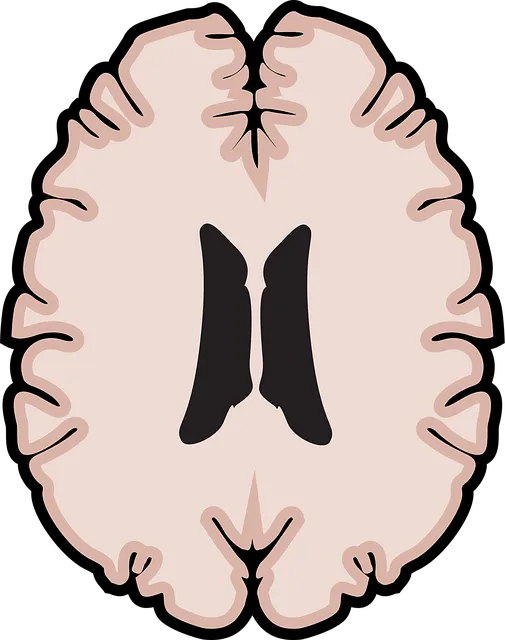Longmont Kaiser Permanente mental health providers are trained in crisis intervention, utilizing active listening, validation, and self-calming strategies to address acute distress and promote long-term emotional well-being. They employ meticulous risk assessment, safety planning, stress management workshops, and mental wellness journaling exercises for comprehensive care. After initial interventions, they focus on tailored therapy, stress techniques, and open communication to support recovery and build resilience in patients, aligning with the Mental Health Policy Analysis framework.
“In the critical realm of crisis intervention, Longmont Kaiser Permanente mental health providers play a pivotal role in fostering resilience and recovery. This comprehensive guide delves into essential strategies for navigating high-stress situations, offering a robust foundation for professionals dedicated to supporting patients during and after crises. From understanding the core principles of crisis intervention to implementing effective communication techniques and post-crisis care, this article equips Longmont Kaiser Permanente mental health providers with valuable tools to make a lasting impact.”
- Understanding Crisis Intervention: A Foundation for Longmont Kaiser Permanente Mental Health Providers
- Assessing Risks and Safety Planning: Essential Tools for Providers
- Communication Strategies: Building Trust in High-Stress Situations
- Post-Crisis Support and Recovery: Nurturing Resilience Among Patients
Understanding Crisis Intervention: A Foundation for Longmont Kaiser Permanente Mental Health Providers

Crisis intervention is a critical skill set for Longmont Kaiser Permanente mental health providers, who often encounter individuals in acute distress. It involves rapid and effective strategies to help people manage intense emotions, cope with overwhelming situations, and prevent further deterioration during crises. Understanding crisis intervention as a foundation allows these providers to offer tailored support that addresses both the immediate needs of patients and their long-term emotional well-being.
By incorporating techniques such as active listening, validating expressions, and promoting self-calming strategies, Longmont Kaiser Permanente mental health providers can assist individuals in developing emotional intelligence and inner strength. This approach is particularly crucial when supporting clients who have experienced trauma, as it enables them to process their experiences safely and build resilience. Trauma support services within the organization play a vital role in equipping these providers with the necessary tools to offer comprehensive care that meets the unique needs of each patient.
Assessing Risks and Safety Planning: Essential Tools for Providers

Mental health providers at Longmont Kaiser Permanente play a vital role in crisis intervention, beginning with meticulous risk assessment. This process involves gathering comprehensive information about individuals’ psychological and social situations to identify potential hazards. By analyzing factors such as past trauma, substance abuse history, and recent life stressors, providers can anticipate and mitigate risks effectively.
Safety planning is another indispensable tool in the provider’s toolkit. It involves collaborating with individuals to develop proactive strategies that ensure their well-being during crises. This includes creating safety plans tailored to specific triggers, establishing supportive networks, and equipping clients with coping mechanisms. By fostering emotional intelligence and empathy building strategies through workshops like Stress Management Workshops Organization, mental health providers empower individuals to navigate challenging situations with resilience.
Communication Strategies: Building Trust in High-Stress Situations

In high-stress situations, effective communication is key to establishing trust between mental health providers at Longmont Kaiser Permanente and individuals in crisis. Building rapport and connection becomes even more critical when dealing with intense emotions and trauma. Mental health professionals are trained to use open and active listening techniques, allowing clients to express themselves without judgment. This involves reflecting on the speaker’s feelings and experiences, ensuring they feel understood and validated. Such an approach fosters a safe space, encouraging individuals to share their innermost thoughts and concerns openly.
Additionally, mental wellness journaling exercises can be a powerful tool for crisis intervention. Encouraging clients to document their feelings, triggers, and coping mechanisms provides a tangible record of their progress. This self-reflection process supports self-esteem improvement by helping individuals identify strengths and resources during challenging times. It also offers a means of tracking mental health over time, enabling both providers and clients to review and adjust strategies as needed, in line with the Mental Health Policy Analysis and Advocacy framework.
Post-Crisis Support and Recovery: Nurturing Resilience Among Patients

After an initial crisis intervention, supporting individuals in their recovery and fostering resilience is a critical step. Longmont Kaiser Permanente mental health providers emphasize that this process involves helping patients develop inner strength and coping mechanisms to manage future challenges. One essential aspect is providing ongoing therapy sessions tailored to each individual’s unique needs. These sessions encourage patients to explore their experiences, process emotions, and gain new perspectives.
Additionally, Longmont Kaiser Permanente promotes the importance of self-care routine development for better mental health. This includes teaching stress management techniques, healthy lifestyle habits, and promoting open communication. By integrating these practices into daily life, individuals can build resilience and enhance their overall well-being. The goal is to empower patients with tools and resources to navigate future crises, fostering a sense of self-reliance and adaptability.
For Longmont Kaiser Permanente mental health providers, crisis intervention strategies are a vital toolset to effectively support patients during high-stress situations. By understanding the foundational principles outlined in this guide, assessing risks and implementing safety planning, utilizing communication strategies that build trust, and providing post-crisis support for recovery, professionals can significantly enhance patient resilience. These evidence-based practices not only ensure immediate care but also contribute to long-term mental health outcomes for individuals facing crises.






